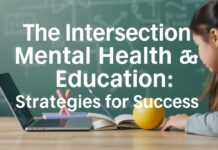In Philadelphia, Catapult Learning, a prominent provider of evidence-based academic, behavioral, and mental health interventions for K-12 schools, recently released the findings of a survey conducted in collaboration with Dr. Sharon Hoover, co-director of the National Center for School Mental Health. The survey, which involved 500 U.S. school counselors, shed light on the critical challenges faced in addressing the escalating youth mental health crisis within schools. The results highlighted the pressing need for proactive, early interventions to support students effectively and prevent crises from occurring.
The survey uncovered a consensus among school counselors that early, targeted support is crucial in combating the growing mental health crisis among youth. The key takeaways from the survey included:
• An overwhelming 96% agreement that many students are prematurely directed to Tier 3 interventions, emphasizing the necessity for earlier identification and intervention before issues escalate.
• A significant 94% belief in the importance of implementing proactive strategies to address mental health concerns before students reach crisis levels.
• Nearly two-thirds (63%) of counselors admitted to lacking the necessary time and resources to adequately support students dealing with Tier 2 needs.
• A staggering 90% of counselors expressed that concerns about their students’ mental health significantly impacted their own well-being, leading to extended work hours and sleep deprivation. In fact, 64% reported feeling more stressed about their ability to support students compared to the previous school year.
Dr. Erica Fener Sitkoff, Catapult Learning’s chief clinical officer, emphasized the systemic challenges faced by school counselors, such as limited time for mental health support and personal burnout. She highlighted the importance of Tier 2 interventions in addressing the mental health crisis effectively, emphasizing the positive impact of targeted support in fostering resilience, improving academic outcomes, and reducing long-term negative effects on students and families.
The mental health challenges plaguing today’s youth have been labeled a crisis by leading experts, with the U.S. Surgeon General calling it “the crisis of our time” in 2023. The surge in rates of anxiety, depression, and suicidal ideation among children has prompted urgent calls for systemic solutions to support young individuals before their struggles worsen.
Expert insights from the American Academy of Child and Adolescent Psychiatry, American Academy of Pediatrics, and the Children’s Hospital Association have further underscored the critical need for immediate action to address the escalating mental health crisis among children and adolescents. Recent CDC data revealing a significant increase in suicide ideation among teenage girls has added urgency to the call for effective interventions.
What Do Counselors Need Most?
The survey also shed light on the specific tools and strategies that counselors identified as crucial in supporting students and managing the growing mental health demands:
• More than half (56%) of counselors prioritized the need for better tools to identify at-risk students.
• 63% emphasized the importance of targeted interventions for students with Tier 2 needs.
• 64% indicated a need for reliable methods to measure the impact of interventions, highlighting the counselors’ desire for effective, data-driven programs.
Dr. Hoover emphasized the importance of equipping schools with the necessary tools and strategies to implement Tier 2 interventions effectively. These interventions include targeted counseling, skills-based training, and stress management programs designed to empower students to manage their well-being proactively, preventing crises before they occur.
The EmpowerU Solution
Catapult Learning’s EmpowerU program offers a comprehensive suite of Tier 2 solutions that bridge the gap between Tier 1 and Tier 3 interventions. This proactive approach empowers schools with scalable solutions to prevent crises from escalating, addressing non-academic barriers to learning such as stress, anxiety, and low mood without adding to staff workload.
Katie Dorn, co-founder of EmpowerU, highlighted the transformative impact of the program in multiplying counselors’ effectiveness, enabling them to reach more students in less time. By offering efficient and scalable programs, EmpowerU removes barriers to early intervention, providing counselors with the necessary tools to act swiftly and deliver measurable outcomes before issues escalate into crises.
For more information on Catapult Learning’s resilience and mental health solutions, including EmpowerU, visit their website at https://catapultlearning.com/mental-health/.
Methodological Notes:
The Catapult Learning Survey, conducted by Wakefield Research among 500 U.S. School Counselors, K-12, between Dec. 2 and Dec. 9, 2024, utilized an email invitation and an online survey.
About Catapult Learning:
Catapult Learning, a division of FullBloom, provides intervention programs for students and professional development solutions for teachers in K-12 schools, executed by a team of experienced coaches. Their professional development services aim to strengthen teachers’ and leaders’ capacity to raise and sustain student achievement, while their intervention programs support struggling learners with tailored instruction. Accredited by Cognia and honored with its 2022 System of Distinction honor, Catapult Learning partners with over 500 school districts nationwide to promote academic and professional growth.
About National Center for School Mental Health:
The National Center for School Mental Health (NCSMH) works to strengthen policies and programs in school mental health to enhance learning and promote success for America’s youth. Through various initiatives, the NCSMH develops best practices, practical tools, and policy briefs to advance successful, innovative, and sustainable school mental health policies and practices. Visit their website at https://www.schoolmentalhealth.org/ for more information.







